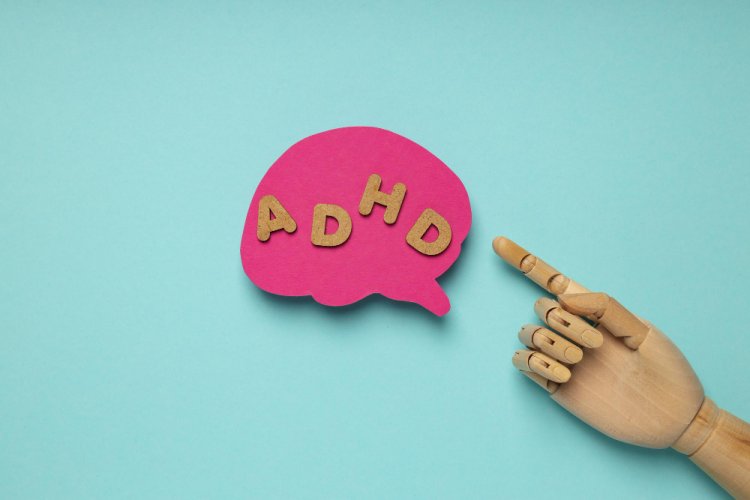Empowering Parents: Strategies for Managing Childhood ADHD
Attention Deficit Hyperactivity Disorder (ADHD) is a neurodevelopmental disorder characterized by persistent patterns of inattention, hyperactivity, and impulsivity that significantly impact a child's daily functioning. It is one of the most common neurodevelopmental disorders in childhood, affecting approximately 5-7% of children worldwide. Understanding the nuances of ADHD is essential for effective management and support for affected children. In this comprehensive guide, we delve into the multifaceted aspects of ADHD in children, covering symptoms, causes, diagnosis, and management strategies.

Symptoms of ADHD in Children
ADHD presents with a diverse array of symptoms, which can vary in severity and presentation. These symptoms are often categorized into three subtypes:
-
Inattentive Symptoms:
- Difficulty sustaining attention on tasks or play activities
- Often fails to give close attention to details or makes careless mistakes
- Appears not to listen when spoken to directly
- Difficulty organizing tasks and activities
- Frequently loses items necessary for tasks
- Easily distracted by extraneous stimuli
- Forgetful in daily activities
-
Hyperactive Symptoms:
- Fidgets with hands or feet or squirms in seat
- Leaves seat in situations where remaining seated is expected
- Runs about or climbs excessively in inappropriate situations
- Difficulty engaging in leisure activities quietly
- Talks excessively
- Blurts out answers before questions have been completed
- Difficulty awaiting turn
-
Impulsive Symptoms:
- Blurts out answers before questions have been completed
- Difficulty awaiting turn
- Interrupts or intrudes on others' conversations or activities
- Often acts impulsively without considering consequences
- Difficulty in delaying gratification
Causes of ADHD
The exact etiology of ADHD is complex and multifaceted, involving interactions between genetic, environmental, and neurobiological factors. While no single cause has been identified, research suggests several potential contributors:
-
Genetic Factors: ADHD tends to run in families, with heritability estimates ranging from 70% to 90%. Numerous genes associated with neurotransmitter systems, particularly dopamine regulation, have been implicated in the development of ADHD.
-
Neurobiological Factors: Structural and functional abnormalities in certain brain regions, including the prefrontal cortex, basal ganglia, and cerebellum, have been observed in individuals with ADHD. These regions are involved in attention, impulse control, and executive functioning.
-
Environmental Factors: Prenatal and perinatal factors such as maternal smoking, alcohol or drug exposure, prematurity, low birth weight, and prenatal stress have been linked to an increased risk of ADHD. Additionally, early childhood exposure to environmental toxins like lead and pesticides may contribute to the development of ADHD symptoms.
Diagnosis of ADHD
Diagnosing ADHD involves a comprehensive assessment conducted by healthcare professionals, typically including pediatricians, psychologists, or psychiatrists. The diagnostic process entails:
-
Clinical Interview: Gathering information from parents, teachers, and the child regarding the child's developmental history, behavior, and academic performance.
-
Behavioral Observation: Direct observation of the child's behavior in various settings to assess the presence and severity of ADHD symptoms.
-
Standardized Rating Scales: Utilizing validated rating scales such as the ADHD Rating Scale or the Conners Parent/Teacher Rating Scales to quantify ADHD symptoms and impairment.
-
Diagnostic Criteria: Confirming the presence of ADHD symptoms according to the criteria outlined in the Diagnostic and Statistical Manual of Mental Disorders (DSM-5).
Management Strategies
Effective management of ADHD in children necessitates a multimodal approach tailored to the individual needs of the child and family. Key components of ADHD management include:
-
Behavioral Therapy: Behavioral interventions such as parent training, cognitive-behavioral therapy (CBT), and social skills training aim to teach children coping strategies, organizational skills, and impulse control techniques.
-
Medication: Stimulant medications, including methylphenidate (e.g., Ritalin) and amphetamines (e.g., Adderall), are often prescribed as first-line pharmacotherapy for ADHD. Non-stimulant medications such as atomoxetine (Strattera) and guanfacine (Intuniv) may be considered for children who do not respond to or cannot tolerate stimulants.
-
Educational Support: Collaborating with educators to implement classroom accommodations and modifications, such as preferential seating, extended time on assignments, and behavioral interventions, can help optimize academic performance and social functioning.
-
Parent Education and Support: Providing parents with psychoeducation about ADHD and teaching them effective parenting strategies can enhance their ability to support their child's needs and reduce family stress.
-
Lifestyle Modifications: Encouraging healthy lifestyle habits, including regular exercise, adequate sleep, and a balanced diet, can complement other treatment modalities and improve overall well-being.
In conclusion, ADHD in children is a complex neurodevelopmental disorder with multifactorial etiology and diverse clinical presentations. By recognizing the symptoms, understanding the underlying causes, and implementing evidence-based management strategies, healthcare professionals, educators, and families can collaborate to support children with ADHD in reaching their full potential academically, socially, and emotionally.
#ADHD #ChildhoodADHD #ADHDsymptoms #ADHDcauses #ADHDdiagnosis #ADHDmanagement #ADHDtreatment #ADHDinterventions #ParentingTips #ChildMentalHealth #NeurodevelopmentalDisorders #BehavioralTherapy #MedicationManagement #EducationSupport #FamilySupport #LifestyleModifications #HealthyHabits #WellBeing #ChildrensHealth #EmpowerParents #SupportChildren
Disclaimer:
The information provided in this article is for educational purposes only and should not be considered medical advice. If you have any health concerns or are experiencing symptoms, it is important to consult with a healthcare professional, such as a doctor or clinic, for proper diagnosis and treatment. Always seek the advice of your doctor or other qualified health provider with any questions you may have regarding a medical condition. Do not disregard professional medical advice or delay in seeking it because of something you have read in this article.
What's Your Reaction?





















